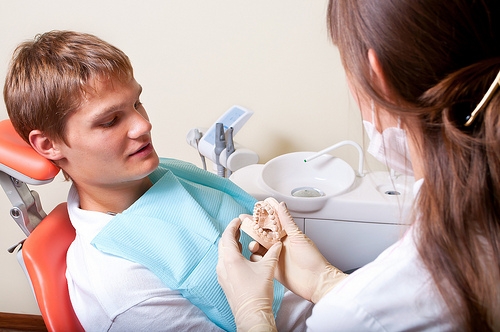Feeling Confident at Your Orthodontic Consultation
April 27th, 2018

How You Can Start Preparing Now
When you first start thinking about going to the orthodontist, it is normal to feel apprehensive. What will your orthodontic experience bring? Whether you have been advised by a dentist or chosen to seek out orthodontic care from Dr. Robee Bailey Jr., DMD on your own, there are a few things you can do to prepare for your initial consultation at Carolina Dental Specialists.
One of the best ways to prepare for an orthodontic consultation is to understand your options. With so many choices available today, orthodontic care is a lot more versatile than in the past. You can start preparing now by seeking out and understanding those options. With a few specific things in mind, you can be totally confident and prepared for your consultation.
Questions to Ask During the Consultation
As you consider orthodontic care, it is likely that a few questions may naturally arise. Don’t be afraid to ask any questions you might have. Our orthodontic team is here to help. Here are just a few examples of questions you may want to ask at your consultation.
- Is there an estimated length of time that I will likely require braces?
- How much should I expect to pay for my treatment? What are the payment options?
- Does getting braces hurt? Is there anything I can do to prevent or minimize pain?
- Is it likely that I will be wearing extra appliances in addition to braces to correct my overbite or other problems?
- Are there specific foods I will need to avoid when I get braces?
- Will braces prevent me from playing my favorite sport or musical instrument?
- How can I keep my teeth clean with braces?
- How often will I be expected to come in for checkups and other appointments?
Once your consultation is over, you don’t have to feel like your options are exhausted. If questions arise after the consultation, don’t be afraid to ask. Our orthodontic team will be here to help throughout the entire process.
Confidence throughout the Process
With answers to your questions, and an orthodontic team on your side, you can be confident about any necessary orthodontic treatments. From the initial consultation to the day your braces come off, your orthodontic treatment at Carolina Dental Specialists can be a smooth and simple process. The moment you see that beautiful smile, you’ll know it was all worth it.
We love bringing nothing but the most amazing smiles to our patients!




 Website Powered by Sesame 24-7™
Website Powered by Sesame 24-7™
